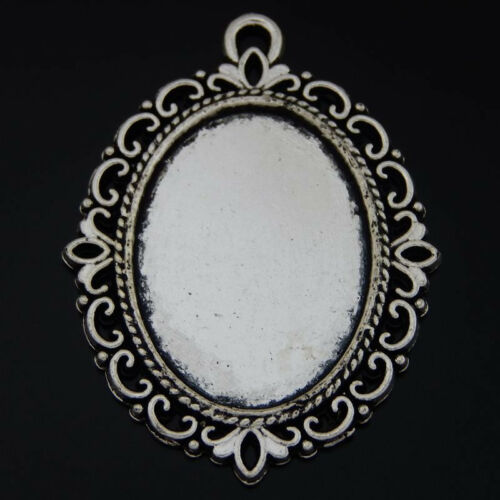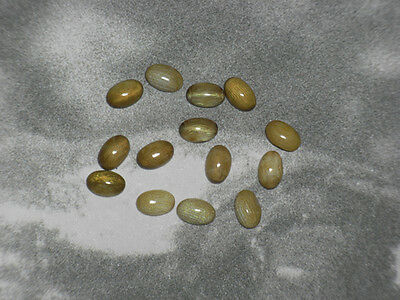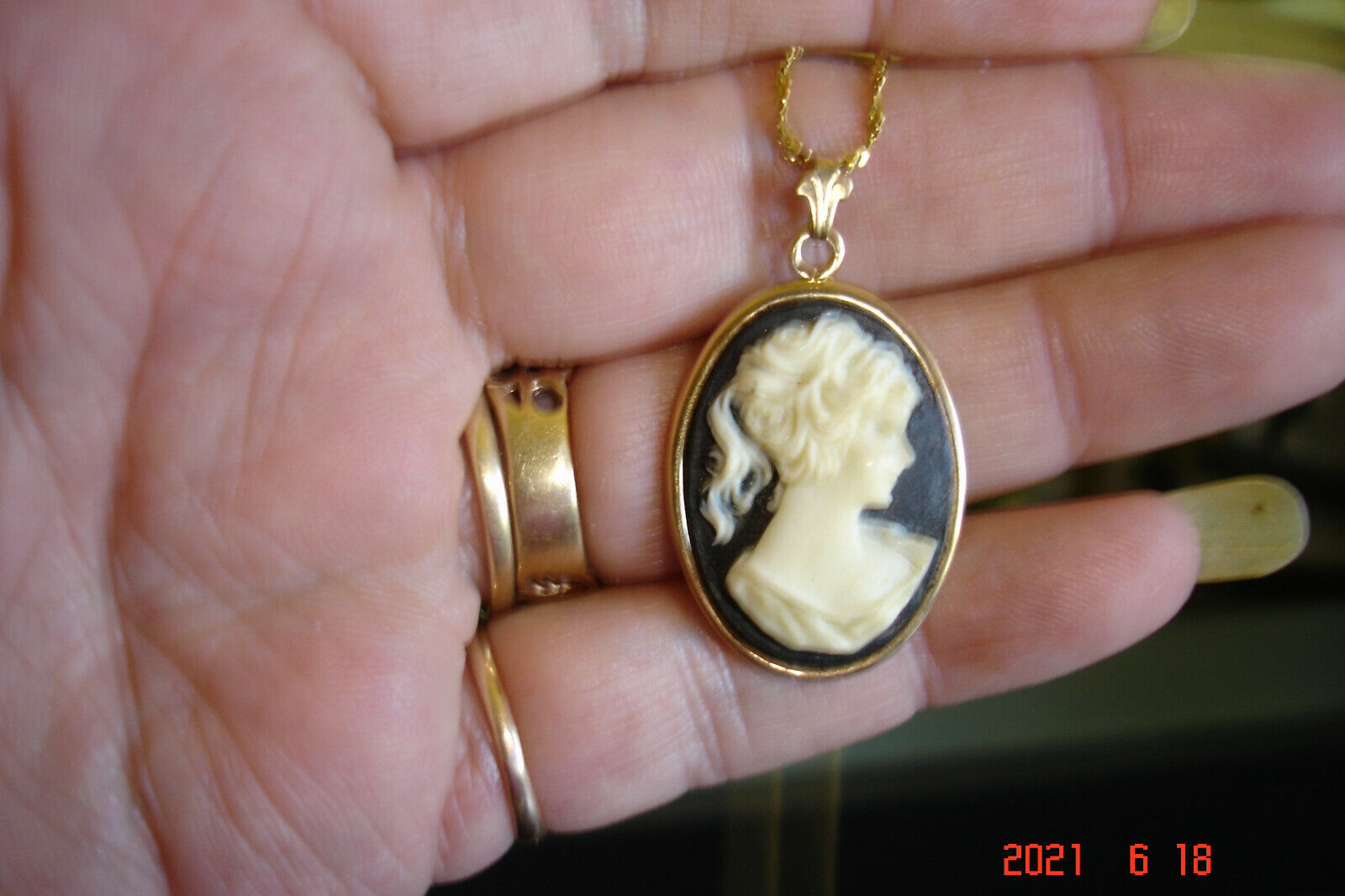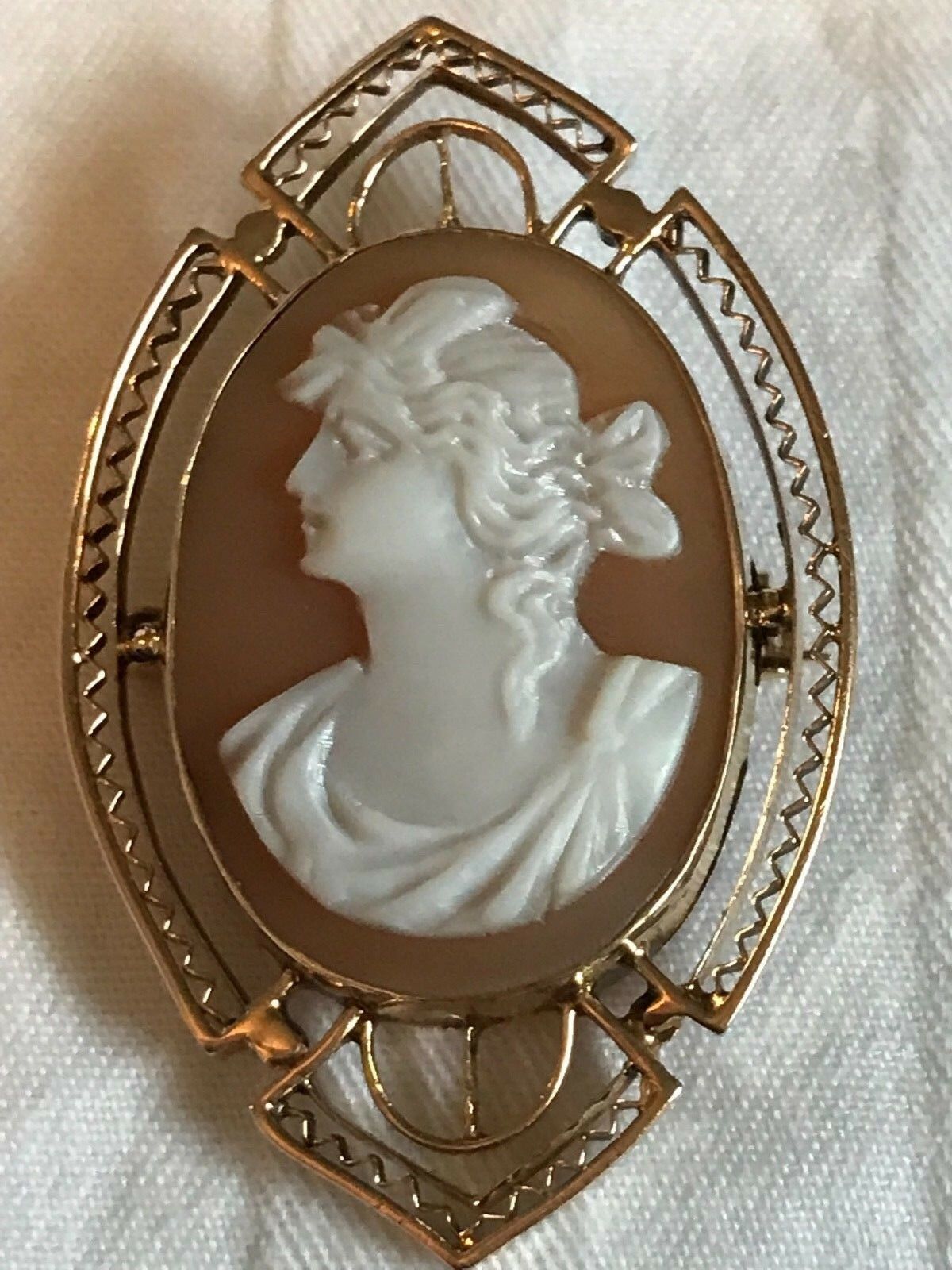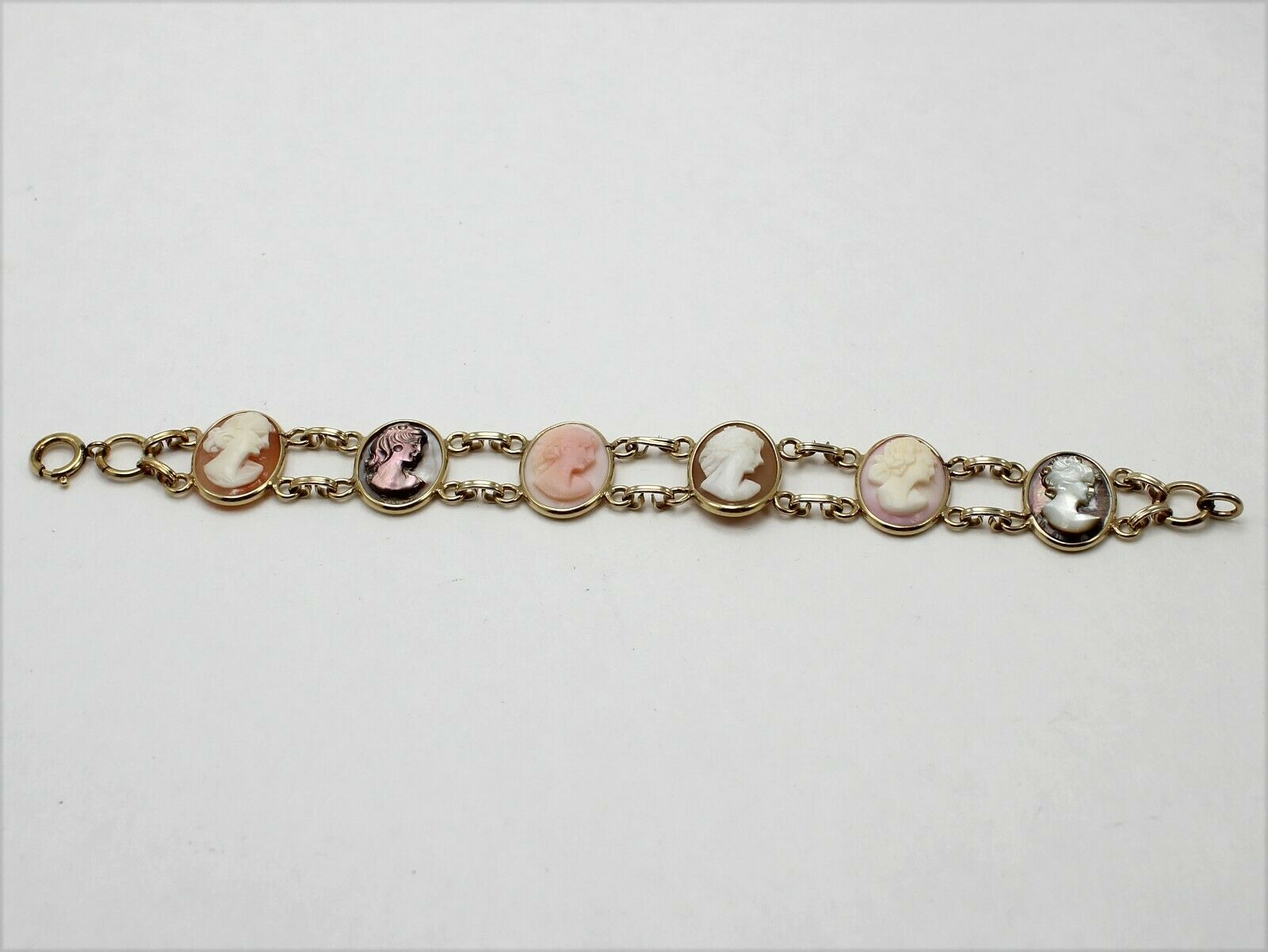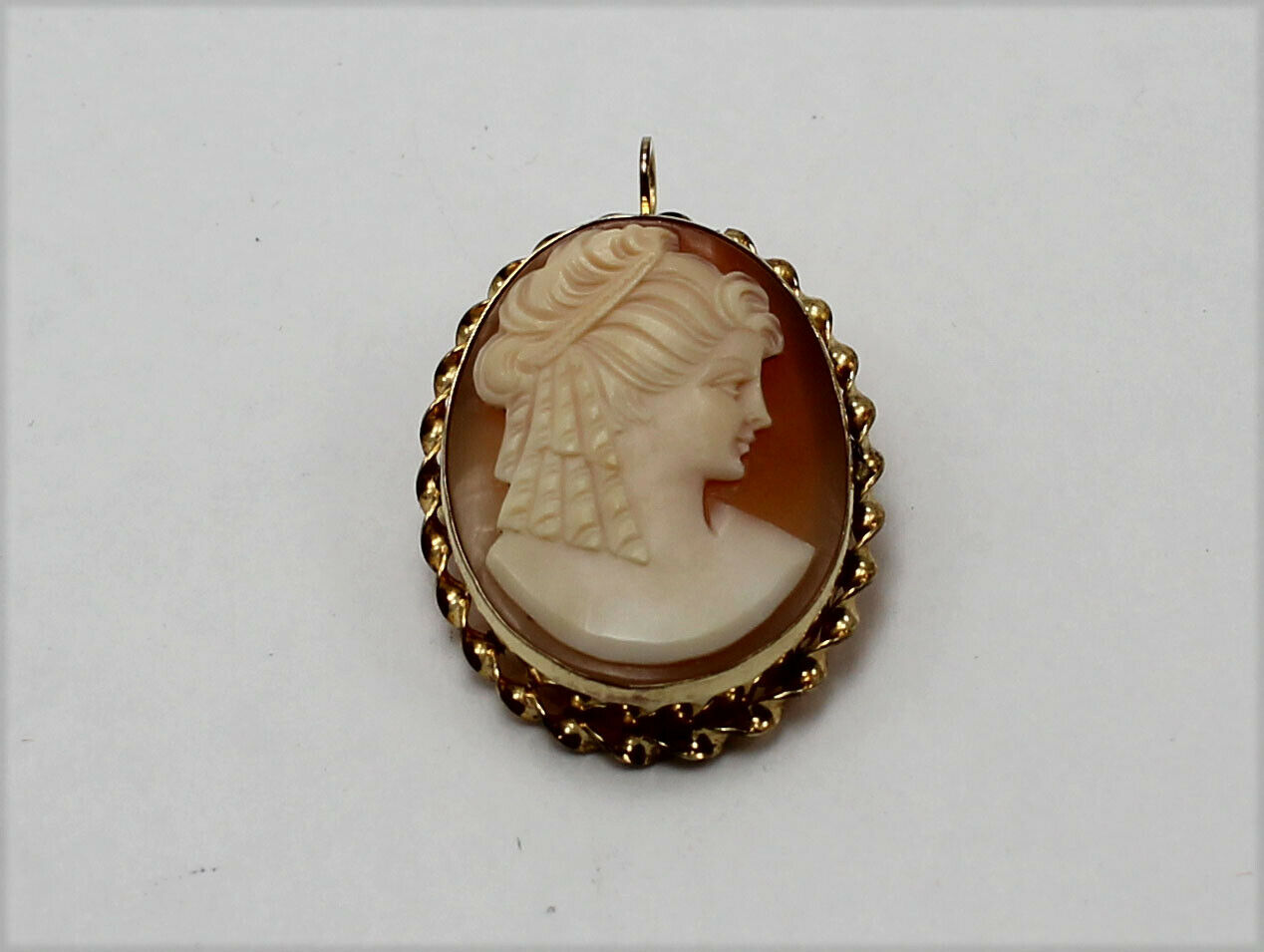-40%
ANTIQUE 18k GOLD CAMEO PIN PENDANT HAND CARVED SHELL SIGNED
$ 139.91
- Description
- Size Guide
Description
ANTIQUE 18k GOLD CAMEO PIN PENDANT HAND CARVED SHELL SIGNED PERFECT 10.5 GRAMS 1 3/4 INCHES LONG 1 1/4 WIDEThroughout history, persons of royalty have set the tone for jewelry fashion. It is said that Queen Elizabeth loved to wear cameos and it is noted that Catherine the Great had a very impressive collection of them. And, the cameo survived the whims of changing fashion during the Nineteenth Century in England. Since Queen Victoria favoured cameos, the cameo was quite popular during and since her reign. They were popular as pins and pendants usually worn on a black velvet ribbon or even sometimes-pastel satin ribbons.
During the Victorian Era, (1837-1901) every decade had its jewelry trends, but the cameo remained a favourite. And interestingly, the intaglio, which was a piece carved below the surface, came before the cameo. In ancient times, the intaglio was used to seal papers or to mark property. Later on, it became a jewelry item worn by women. The cameo is the opposite of the intaglio. It is a portrait or scene carved in relief with a contrasting colored background. In the Nineteenth Century, skilled artisans utilized gemstones, stone, shell, lava, coral and manmade materials to produce cameos. The making of Cameos~
Italian carvers began using shell for their creations around 1805. ByJewelry of the 19th Century - Beautiful Cameos... the Victorian Era, shell had become appreciated as a medium that was easily carved and inexpensive. Unlike carved gems, the shell cameo was less formal and was worn during the day. Stone cameos came from agate, onyx or sardonyx. These materials offered many colorful layers for carvers to utilize











